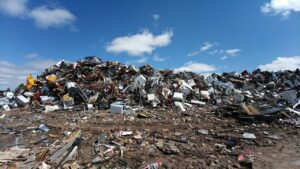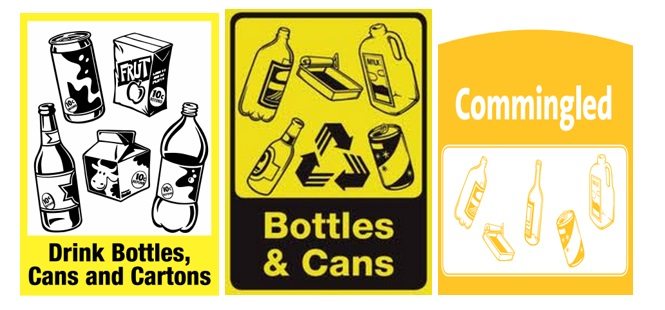Drones In Waste Management 🤖 – How Does Using Drones Affect The Environment?
Energy Disrupter
Drones In Waste Management 🤖: Lo and behold, the future of waste management has come! From phones with facial recognition to 5g in wireless technology, we have seen drastic technological advances in the past years; it continues to go strong in 2020.
But enough about that! Let us discuss what made you click the blog, which is drones in waste management.
How do drones affect the environment, anyways?
A bit about Waster
Before we continue the topic, let me first discuss with you Waster.
>Download Now: Free PDF Business Owners Guide To General Waste Bin Services
Here at Waster, we offer you innovative solutions for your waste management and recycling needs. Additionally, we offer flexible, 30-day contracts instead of long and unfruitful lock-in contracts.
Click on the blue button to learn more.
Drones in waste management: helping us save the environment
Drones, or unmanned aerial vehicles, are aircraft technology that can be deployed without human intervention. First invented and modified in the mid to late 1910s, it was first used as a war asset in World War I.
But now, it is almost always used for mainly rescue operations, healthcare, discovering new places hardly accessible to man, mapping, and even filming.
What stands out the most for me, though, is that drones can now be used even in waste management!
As a result, Here are some ways on how drones can make a groundbreaking impact on waste management. See our blog on China waste problem; it may give you some insight into why we need drones in waste management.
1. Landfill monitoring
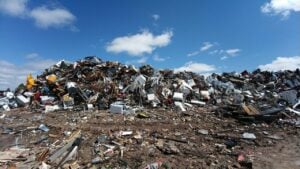



Before the conception of this idea, managers of landfill found it very hard to survey and map an entire landfill. But nowadays, landfill monitoring using drones (as reported by waste today, check them out!) has now become a waste management trend.
One example would be Hamm Inc., wherein it operates on aggregate production, paving, construction, landfill, and others. See our blog on landfill Australia to learn more about the landfill issues we face.
But that doesn’t come without challenges, of course, as experienced by Paul Johnson, technology manager of Hamm Inc. of Perry, Kansas. “I normally did the data collection and surveying and passed it off to someone else for analysis. When we purchased the drone, it came with a lot of baggage,” Johnson says.
“It was definitely a challenge at first. It was pretty tough to pick up. I just kind of taught myself over the course of what we’ve done.”
As a result of using drones for landfill monitoring, surveying became much easier. Additionally, it became cost-effective as opposed to spending so much money on flying in an aeroplane, taking a picture. It also relieves you of walking miles and miles in a landfill while surveying it, saving you so much time and effort, as a result.
If used correctly, it also enables higher-resolution surveying without necessarily sacrificing quality. It provides landfill managers with accurate, up-to-date information on the landfill’s current status.
But first things first, make sure to equip yourselves with the right software, hardware, and licenses to operate it successfully, as per Propeller. The Propeller platform, along with their own set of drones, provides you with 3D data survey of your site – in this case, a landfill site – depending on the data the drones captured.
2. Delivering goods by drones equals better waste management!
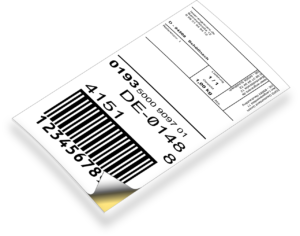





Why is that? Let me tell you why. First, it reduces energy consumption. Instead of using vehicles for transportation, why not try to innovate and deploy drones for delivery, right? This helps save up fossil fuel, electricity, etc.
Second, it cuts the delivery company’s costs. How is that so? Well, it reduces the costs needed for gas, vehicles, personnel hiring, and others.
Have companies already used this? One such famous company that aims to use delivery drones is Amazon. Called Amazon Prime Air, it is said to deliver packages of up to five pounds in 30 minutes or less using small delivery drones. According to the company, they manufactured it with safety as its top priority. The drones are built with sophisticated technology that aims to safely deliver packages. The programme will launch when Amazon ensures that everything is well thought out of.
3. Wildlife monitoring






Along with the usage of drones in waste management, it can also be used in protecting and monitoring wildlife. Before, rangers have a hard time tracking wildlife habitat and protecting the animals that live in it. But now, with the help of drones, they can monitor if poachers are around the area, or if they find sick animals that need taking care of.
Additionally, scientists have used it to track animal behaviour – i.e., migration patterns, population sizes, etc.
4. Agricultural purposes
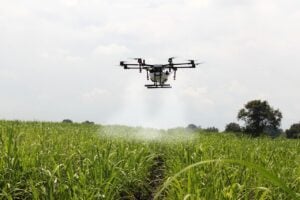





Farmers can now use drones, too! They can use it as a way to monitor their farm, crops, and animals. In using drones, they promote their farm’s waste management and practices.
First, it reduces the usage of tractors or vehicles for farm inspection. That saves gas, therefore cutting greenhouse gas emission. Additionally, farmers can keep track of their crops via aerial surveying without exerting too much effort by hand.
It also reduces pollution, as drones can be built with software that keeps track of vegetation health and growth. As a result, it keeps track of how much fertilisers and pesticides needed to be used in growing crops. It helps in avoiding using too many pesticides and herbicides that can ruin the environment if consumed in great amounts.
Drones in waste management: conclusion
Much like reverse logistics, drones innovate waste management practices to much greater heights than ever before! It can be utilised in various ways, depending on the industry it is assigned to.
In the future, expect to see more drones being used in sustaining the environment. You never know, maybe inventors will improve drones much more that humans won’t be needed anymore in waste management!
Waster: waste and recycling innovator
Check out our waste recycling shop and discover the best deals in terms of waste management and recycling pricing and services.
Also, please call 1300 WASTER (1300 927 837), or email us at [email protected] if you have any further questions.



